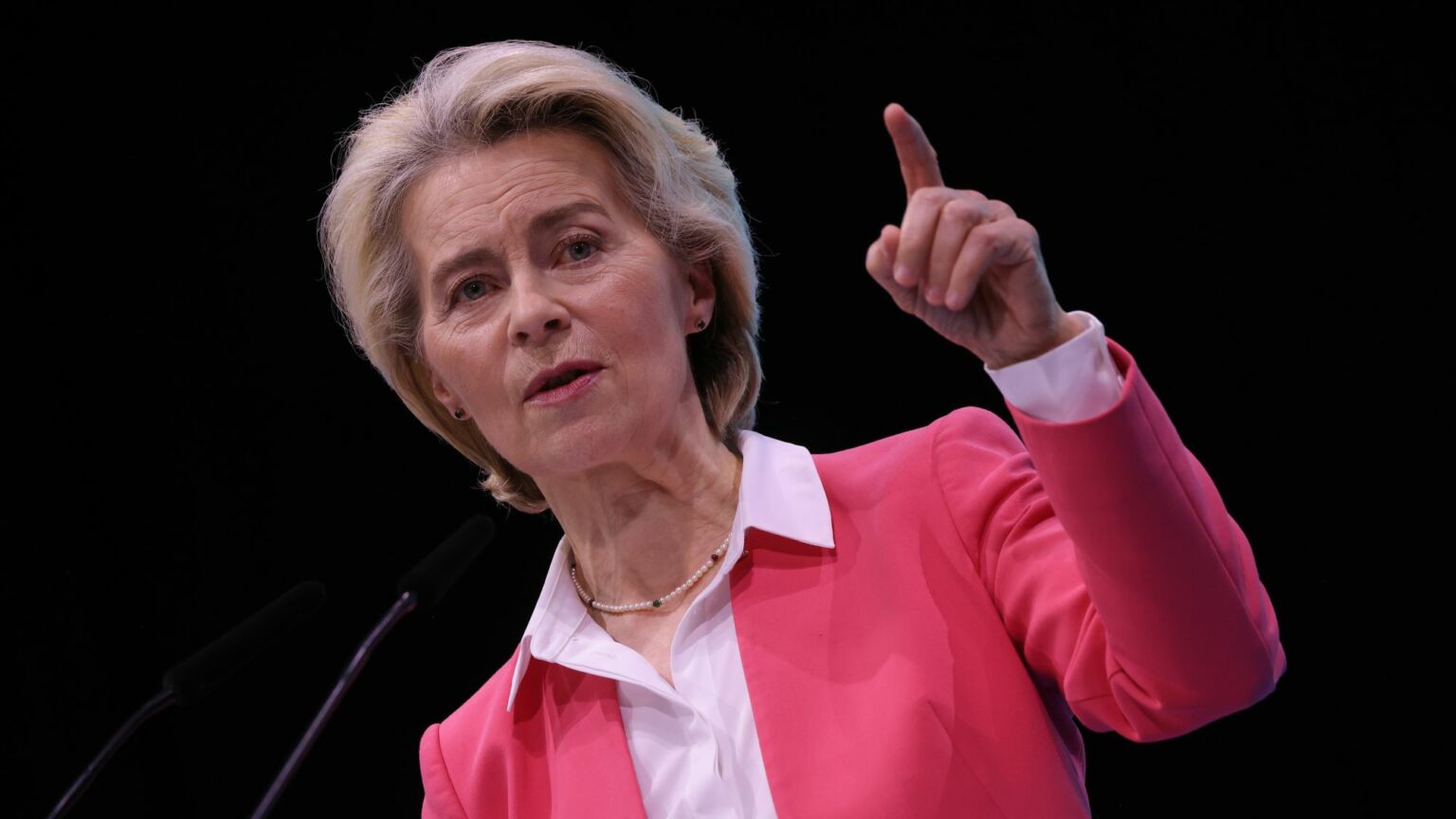Is the EU going cool on Net Zero?
Farmers protests and the rise of populist parties have put the eco-zealots on the back foot.

Want to read spiked ad-free? Become a spiked supporter.
There are several signs that EU elites’ commitment to Net Zero could be wavering.
Last month, the president of the European Commission, Ursula von der Leyen, signalled that her centrist European People’s Party (EPP) is open to cooperating with the right-wing European Conservatives and Reformists (ECR) group after the European Parliamentary elections in June.
Von der Leyen’s overtures to the ECR may be driven principally by her desire to win a second term as Commission president. But an alliance between the EPP and ECR would have ramifications beyond her own future. It could also mark a significant shift rightwards for EU policymaking.
The largest party in the European Parliament, the EPP, is composed of liberal-conservative and Christian-democratic parties from across Europe. Von der Leyen and her party have tended to seek alliances with the Socialists, Greens and the liberal Renew Europe group in the past to pass legislation. This is the first time it has reached out to the ECR, a group that includes right-wing populists, from the Brothers of Italy to the Sweden Democrats and Poland’s Law and Justice Party.
An EPP-ECR alliance could have especially significant ramifications for the EU’s green agenda. As Politico puts it: ‘The green direction of EU policy – already being walked back by von der Leyen when it comes to environmental rules for farmers and legislation to restrict pesticides – would be even more vulnerable if a new right-leaning alliance takes shape.’
It could certainly pose a challenge to the EU’s European Green Deal, which has shaped Commission policymaking priorities since it was approved in 2020. Under this deal, wide-ranging laws, directives and carbon-reduction strategies are being imposed on member states in an effort to reach Net Zero by 2050. This includes prohibiting the sale of almost all new combustion-engine cars and vans by 2035 and forcing homeowners to make expensive ‘energy-saving’ renovations to their homes. The ECR group has already shown its willingness to push back on this agenda. Both the right-wing populist governments of Italy and Hungary voted against the EU Green Homes Directive earlier this year.
However, the most powerful opposition to Net Zero has come from outside the European Parliament. Farmers across the EU have led heroic protests against the Green Deal and the devastating impact it is having on agriculture. The farmers’ protests have not only been disruptive, bringing traffic to a standstill in Paris, Berlin, the Hague and elsewhere; they are also extremely popular. Surveys in Poland and France show that about 80 per cent of the public support the farmers.
This widespread opposition to aspects of the Green Deal has already won concessions from the Brussels elite. In February, von der Leyen announced that the EU was scrapping plans to halve the use of pesticides by 2030 in order to help farmers. Then, in March, it emerged that farmers were to be allowed to continue receiving EU subsidies ‘even if [their practices] don’t meet the most basic environmental standards’, as laid out in the Green Deal. This means that farmers will no longer be required to leave four per cent of their land fallow to support biodiversity, and member states will be able to introduce exemptions from green rules.
None of this is to say that the EU has abandoned eco-austerity entirely. After all, Net Zero is still firmly entrenched at the heart of Brussels’ policymaking, and many punishing Green Deal laws and directives have already been passed. Unless we can prevent their implementation, they will have a significant and immiserating impact across Europe.
Still, von der Leyen’s overtures to the ECR, and the rowing back on Green Deal initiatives, show that Brussels could at least be deprioritising the environmentalist agenda. Indeed, a draft EU policy-priority list for the next five years – produced by European Council president Charles Michel and heads of member states, and leaked to Politico – shows how little emphasis there now is on green policies. The document makes no reference to biodiversity, the Green Deal or even the word ‘green’. Instead, it focussed on defence, security and migration.
The Brussels elites may not have given up on their green ambitions entirely, but growing public opposition has certainly put them on the back foot.
Dominic Standish lectures for the University of Iowa and works with the Collins College of Business Center for Energy Studies at Tulsa University. He is the author of Venice in Environmental Peril? Myth and Reality.
Picture by: Getty.
Who funds spiked? You do
We are funded by you. And in this era of cancel culture and advertiser boycotts, we rely on your donations more than ever. Seventy per cent of our revenue comes from our readers’ donations – the vast majority giving just £5 per month. If you make a regular donation – of £5 a month or £50 a year – you can become a and enjoy:
–Ad-free reading
–Exclusive events
–Access to our comments section
It’s the best way to keep spiked going – and growing. Thank you!








Comments
Want to join the conversation?
Only spiked supporters and patrons, who donate regularly to us, can comment on our articles.